A Kwanzaa Keepsake and Cookbook by Jessica B. Harris is more than a cookbook—it’s a cultural touchstone. With its updated edition, Harris reintroduces readers to the history, meaning, and celebration of Kwanzaa, blending African American culinary traditions with inspiring narratives and practical ways to deepen family connections. Structured around Kwanzaa’s seven principles, the book offers themed menus, Kwanzaa recipes, blessings, projects, and spaces for readers to document their family traditions. This is a must-have for anyone looking to celebrate Kwanzaa or explore African American culinary history.
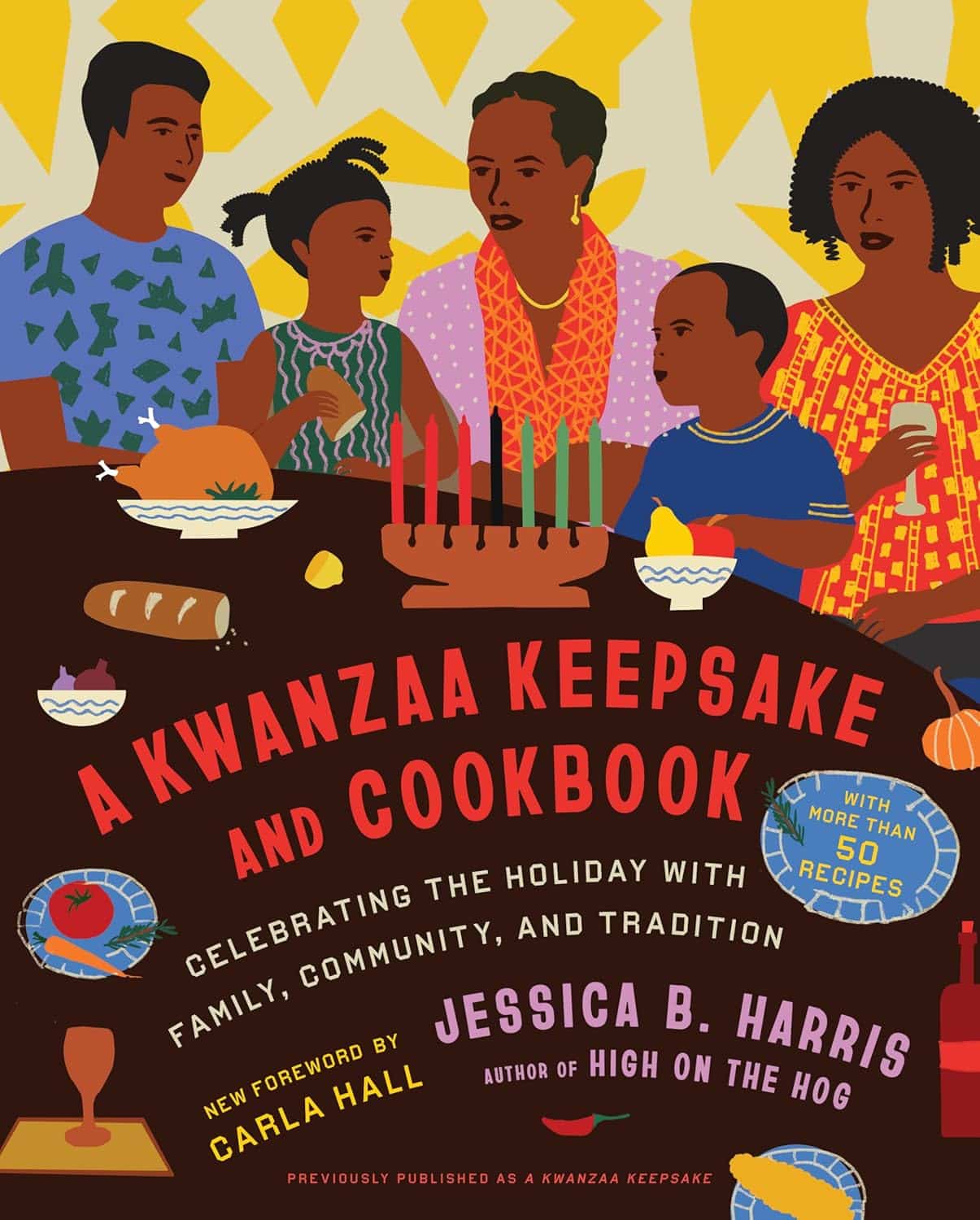
This post contains affiliate links you can use to purchase the book. If you buy the book using that link, I will receive a small commission from the sale.
A Kwanzaa Keepsake and Cookbook by Jessica B. HarrisPublished by Simon and Schuster on November 5, 2024
Pages: 208
Source: the publisher
From the award-winning author of High on the Hog—inspiration for the “energetic, emotional, and deeply nuanced” (The New York Times) Netflix series of the same name—comes a new and updated edition of A Kwanzaa Keepsake, another important exploration of African American culture, food, and family, featuring recipes and stories to help this generation create unique holiday traditions.
Now with a new introduction by award-winning writer and iconic culinary historian Jessica B. Harris, a foreword by chef and television personality Carla Hall, revised recipes and stories, and a fresh new package, A Kwanzaa Keepsake offers proverbs, ceremonies, family projects, inspirational biographies, blessings, and of course, wonderful recipes. Structured around the seven days of Kwanzaa and the virtues each day represents, Harris shares a themed feast for each night, designed to reflect the principle of the day. Some of the menus include:
-Umoja (Unity), featuring dishes of multinational origin such as Seasoned Olives, Mechoui-Style Leg of Lamb with cumin, mint, and chili, and a classic Caribbean rum punch, and reminds readers of the union of all peoples of African descent.
-Kujichagulia (Self-Determination), composed of dishes from the African continent including Sweet Potato Fritters, Grilled Pepper Salad, and Piment Aimee, a hot sauce from one of the author’s friends.
-Kuumba (Creativity) is a healing supper and communal meal that opens the gates of remembrance through food. The repast is centered around a heritage recipe and includes others for Pickled Black-Eyed Peas, a fish dish from the the Ivory Coast, Spicy Cranberry Chutney, and a killer pecan pie with molasses whipped cream.Interspersed throughout the book are spaces to record family memories, sayings, and recipes. Rich in culinary history, and a source of inspiration for treasuring and recording family traditions both old and new, A Kwanzaa Keepsake is a book to cherish, and one that families will turn to again and again.
I received this book for free from the publisher in exchange for an honest review. This does not affect my opinion of the book or the content of my review.
Author
Jessica B. Harris is a renowned culinary historian, award-winning author, and one of the foremost authorities on the food and culture of the African diaspora. Over her illustrious career, she has published more than a dozen books, including High on the Hog, which was adapted into a critically acclaimed Netflix series. Harris’s works explore the deep historical connections between food, culture, and identity, focusing on how African culinary traditions have shaped cuisines around the world.
Harris’s influence extends beyond her writing. She has been inducted into the Harris’s influence extends beyond her writing. She has been inducted into the James Beard Foundation’s Cookbook Hall of Fame and honored with the Lifetime Achievement Award by the Southern Foodways Alliance. Her scholarship bridges the gap between academia and everyday food enthusiasts, making her work accessible and enlightening for diverse audiences.
Audience
This cookbook is perfect for families celebrating Kwanzaa or those wanting to learn more about African American traditions and cuisine. It appeals to home cooks, cultural enthusiasts, and those looking to create meaningful family memories during the holidays. It’s equally suited to beginners exploring Kwanzaa for the first time and seasoned celebrators seeking fresh inspiration.
Mission
The mission of A Kwanzaa Keepsake and Cookbook is to honor the principles of Kwanzaa through food, storytelling, and tradition. The book serves as both a guide and a keepsake, encouraging families to connect over shared meals and record their own histories while celebrating African American heritage. It’s definitely more helpful for those who celebrate Kwanzaa, given the workbook aspects of it, but the recipes and stories are interesting for any who wants to learn more.
Standout Features I Liked
- Menus themed around the seven principles of Kwanzaa
- Kwanzaa recipes that are easy to make with descriptions on their signficance.
- Spaces for documenting family traditions and recipes
- Stories and cultural context that deepen the significance of the holiday (and explain in easy terms for those of us learning for the first time!)
FAQ
The book features recipes inspired by African, Caribbean, and African American cuisines, tailored to Kwanzaa’s seven principles. Dishes like Sweet Potato Fritters, Pickled Black-Eyed Peas, and Pecan Pie with Molasses Whipped Cream reflect a wide range of culinary influences.
Yes. Most recipes are meant for an evening dinner and don’t take much time to prepare.
It focuses on the basics. The recipes are accessible, with straightforward instructions, and the cultural context provided makes it an excellent introduction to Kwanzaa.
There are no pictures. The book focuses more on storytelling and family traditions than on visual elements, though it includes some illustrations and decorative touches.
Standard kitchen tools suffice; no unique equipment is required.
Most ingredients are pantry staples or widely available in grocery stores, with some optional specialty items for authenticity.
Preparation times vary but are reasonable for home cooks, with many Kwanzaa recipes designed to be shared communally.
No, this cookbook focuses on the cultural and celebratory aspects of food rather than nutritional breakdowns.
Absolutely! The menus are designed to bring families together and offer dishes suitable for a variety of palates.
No, it is not a part of a series.
Yes! Its rich storytelling, historical insights, and cultural explanations make it as enjoyable to read as it is to cook from.
If you celebrate Kwanzaa, this book is a keeper. Otherwise, check it out from the library and see how you like it!
Recipe Review
Recipes I’ve Tried
None yet.
Recipes I’m Excited to Try
- Mechoui-Style Leg of Lamb
- Piment Aimee (Hot Sauce)
- Pecan Pie with Molasses Whipped Cream
Final Verdict: A Permanent Addition?
I’m going to keep this one in my library because I don’t have any Kwanzaa cookbooks and I know someday my daughter will come back from school asking to learn more. The recipes are also pretty unique and I don’t have anything similar in my library.
If You Are Interested In This Book, You Might Also Like:
If you enjoyed A Kwanzaa Keepsake and Cookbook, consider Jessica B. Harris’s High on the Hog for more African American food history or Carla Hall’s Soul Food: Everyday and Celebration for a broader look at African American cooking.


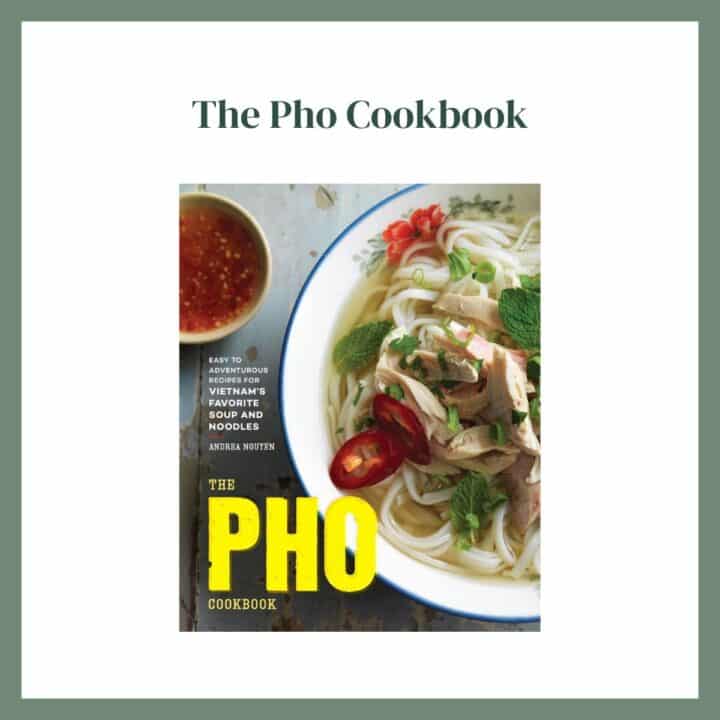
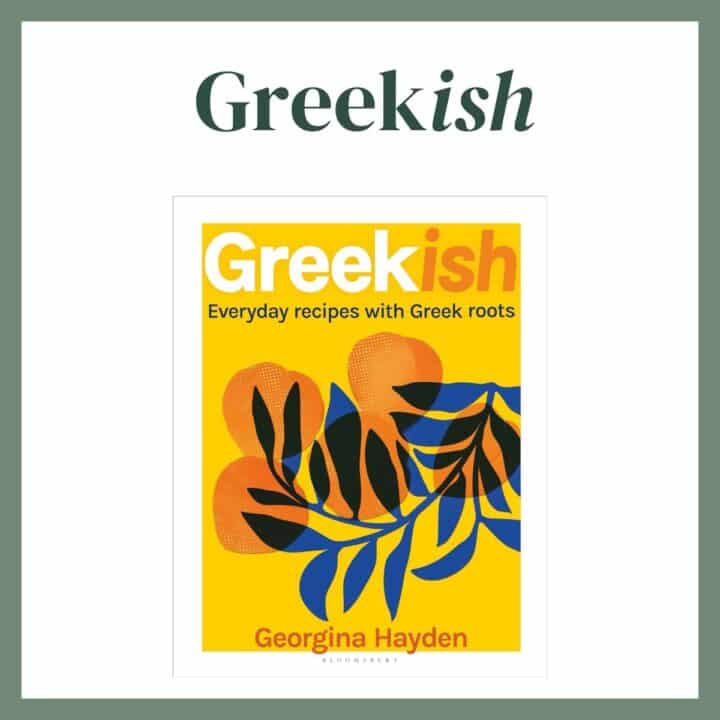
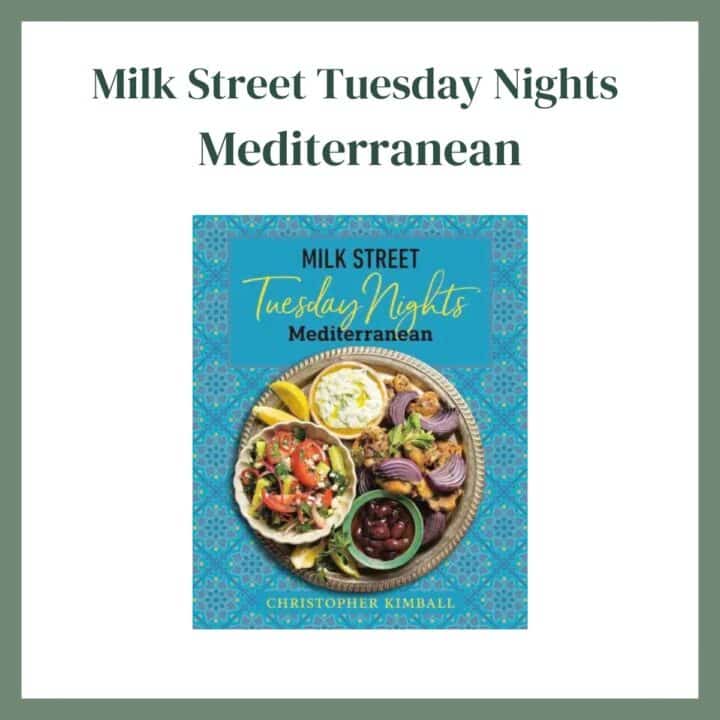
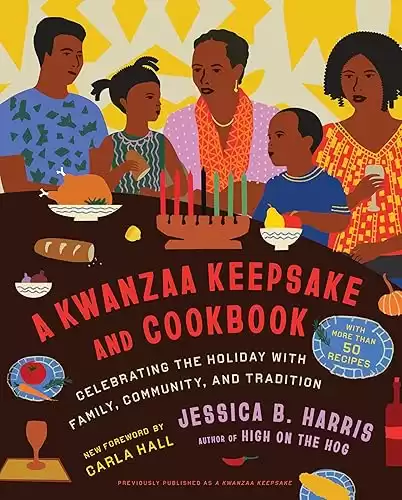




Leave a Reply